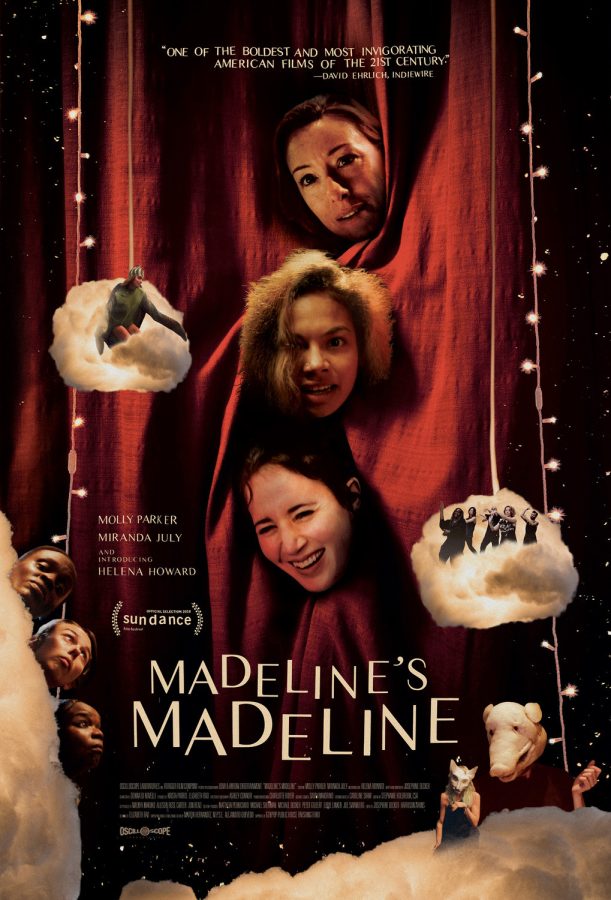REVIEW: ‘Madeline’s Madeline’ — a spellbinding experiment that lands just short of its mark
“Madeline’s Madeline” is a damn near impossible film to qualify.
The film follows Madeline — obviously — a 16-year-old girl with some form of mental illness tasked with playing a cat in an improvisational theater troupe led by the confounding Evangeline, portrayed eerily by Molly Parker of “House of Cards” fame.
As the script carries us through Madeline’s unconventional coming-of-age, the film makes one thing clear: The conventions and rules that define contemporary popular film genres don’t apply here. As the script explicitly states, “You are not the cat; you are inside the cat.” The audience isn’t inside Madeline’s life; it’s inside her mind.
“Madeline’s Madeline” is a spellbinding example of an art gone by the wayside — experimental cinema, the films you see in local arthouses that perplex the viewer with how they ever got made or pitched in the first place. The movie could frustrate in that regard.
Not everything ties together in a neat bow, and the line between Madeline’s reality and her plummet into psychiatric chaos blend so tightly that sometimes it seems there is no difference, no rhyme or reason to any of it.
But for some reason difficult to put a finger on, “Madeline’s Madeline” works, and the frontrunner for the catalyst is Helena Howard. Howard portrays Madeline with such fearlessness and ferocity that her character’s descent into unwitting mayhem seems real.
It’s almost impossible to tell — and unbelievable to hear — that this is Howard’s first feature film performance. It’s up there with the likes of James Dean’s “East of Eden” and Edward Norton’s “Primal Fear” with the most magnetic silver screen debuts of all time.
Will Hollywood take notice of a 16-year-old performer not afraid to dress up like a turtle and dance on a beach in the name of high cinema? Probably not, and it’s unlikely the general American moviegoer will either.
“Madeline’s Madeline” won’t be for everyone, and it’s easy to suspect that it won’t be for most. The editing and cinematography styles evoke feelings of discomfort and unease with grainy frames and extreme closeups. Subject matter — pornography, sex, familial assault — aren’t exactly dinner table topics.
It’s a common theme of criticism to try to compare a film to a similar outfit in its genre, but there is genuinely no way to confound “Madeline’s Madeline” to any single archetype. It mixes drama with coming-of-age, romance with social commentary to create a blend that doesn’t quite mix right until the end.
Writer/director Josephine Decker does seem to have something to want to say toward the end of the film, but I’m just not sure she knows how to say it. Madeline’s teenage angst mixed with a lapse in medication causes a considerable amount of friction with her mother, played here by indie darling Miranda July.
When Evangeline sees this, she invites Madeline and her mother to portray an improvisational scene depicting their relationship. Everything — as the phrase goes — hits the fan, creating an emotional — if not incredibly uncomfortable — whirlwind for the characters. Evangeline decides this is going to be the subject of the play the troupe has been working on.
She wants to tell Madeline’s story, but Madeline is mixed-race. Who gets to decide who tells that story?
It’s hard to tell what Decker was going for here, but it’s at least a topic of conversation worth bringing up.
This becomes especially true in today’s more socially conscious Hollywood, in light of the recent controversies surrounding Scarlett Johansson’s casting as a transgender man and “Crazy Rich Asians’” fight to keep its lead character Asian.
“Madeline’s Madeline” is more than the sum of its parts. The only problem with that is the magic that comes from Howard’s stunning performance sometimes falls by the wayside when it’s presented in such an inharmonious fashion with jump cuts and nontraditional photography choices.
Decker’s film is unquestionably bold, and even if not everything meshes for a satisfying experience for the average filmgoer, “Madeline’s Madeline” is a step in the right direction — back to relevance — for experimental cinema.
Cameron Hoover is the managing editor. Contact him at [email protected].


